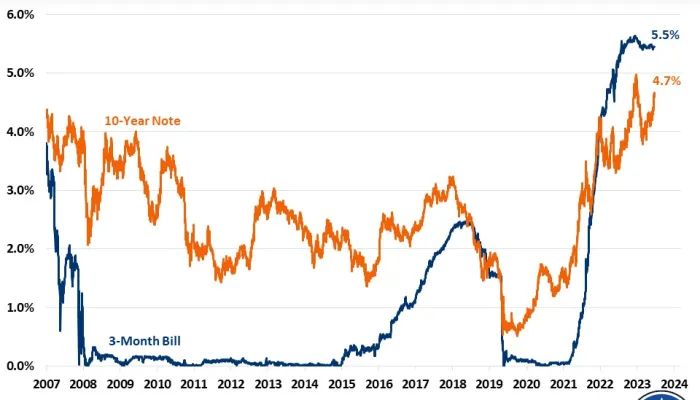S&P Warns U.S. About Credit Rating
Credit-rating agency Standard & Poor’s has a message to U.S. policymakers: We are watching you on the growing national debt.
In an interview today in Dow Jones Newswire, the chairman of S&P’s sovereign rating committee said that the U.S. government will need to take steps to protect its cherished AAA credit rating. He specifically referenced the White House fiscal commission and indicated that the agency would closely watch how lawmakers deal with its recommendations due to be issued after the November elections.
"It is very important for the credit standing of the United States that the Congress considers very carefully what the fiscal commission proposes," John Chambers, chairman of S&P's sovereign rating committee, was quoted as saying.
"It is very important for Congress to take the required steps."
While the article indicates that there is not much chance of the U.S. credit rating being downgraded very soon, S&P has been making it clear recently that the country won’t be given slack indefinitely for its mounting debt. New baseline projections released today by CRFB underscore how unsustainable the current course is. CRFB forecasts that U.S. debt will reach 75 percent of GDP in 2015, 89 percent in 2020, and 127 percent in 2030 if no action is taken.
The remarks indicate that the markets are watching for signs that policymakers will confront the mounting long-term debt and that they will look at the fiscal commission as a bellwether. This gives new emphasis to the work of the National Commission on Fiscal Responsibility and Reform.
The bipartisan panel is being pressured from all sides not to recommend cutting certain programs or to deal with the revenue side of the equation, making it more difficult to find solutions. The comments from S&P illustrate that the inability of the commission to issue recommendations or the failure of Congress to act on the proposal could be seen by markets and creditors as a sign that the country is not able to change course, which could have severe repercussions for the U.S. economy.
If the credit rating of the country is lowered and U.S. debt is no longer attractive to investors, interest rates will rise – restraining economic growth. Developing a credible plan to deal with the debt will be essential to maintaining our credit worthiness. That is why CRFB has been calling for a fiscal plan now that can be implemented as the economy recovers. Many experts believe that the announcement of a credible plan would reassure markets and allow the U.S. to continue to enjoy low interest rates, which will aid the fragile recovery. We have formed the “Announcement Effect Club” to highlight prominent individuals that share this view.
We cannot afford to ignore these warnings. We need to develop a credible plan now. And the fiscal commission is a good springboard for action.


